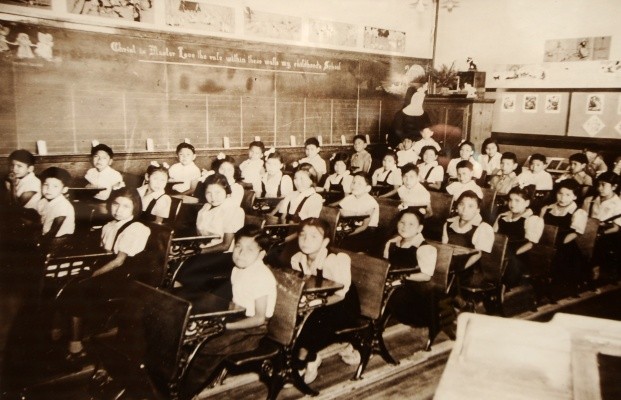TORONTO – Destroying the sensitive testimony of survivors of Canada’s notorious residential school system will seriously damage the historical record and the material should instead be sealed for 30 years, an Ontario court heard Tuesday.

In making a pitch to keep the records, a lawyer for the Truth and Reconciliation Commission said their preservation does not have to equal their publication.
“Destruction of those documents will have a deep, irreversible impact on the state of the record,” lawyer Julian Falconer said.
IN DEPTH: Truth and Reconciliation Commission
“The minute you destroy the information, you alter the ability for generations to come to remind people of what was done to these victims.”
At issue are records of the often heart-rending and emotional testimony of 37,000 survivors of the residential school system who sought compensation for sexual, physical and psychological abuse.
Their evidence under the independent assessment process – separate from thousands of others who spoke publicly to the commission about their experiences – was intended to be confidential.

Get breaking National news
The head of the adjudication process, Dan Shapiro, with backing from a privacy expert, argues the only practical way to ensure that confidentiality and avoid revictimizing survivors is to destroy the documents.
At the same time, part of the mandate of the Truth and Reconciliation Commission is to create as complete a record as possible of the residential school system and its legacy.
- Canadian woman charged with illegally crossing into U.S., kicking border agent’s face
- A new ‘cold’ war? Canada looks to bolster Arctic security, sovereignty
- Canadian furniture industry still ‘reeling’ after Trump pauses tariff spike
- Ottawa propose fines of up to $1M for violating foreign influence registry rules
READ MORE: Voices of 40,000 residential school survivors would be silenced if documents destroyed: archivist
There are ways to protect privacy without threatening history, Falconer told Ontario Superior Court Justice Paul Perell.
“Part of our mandate is to ensure claimant survivors aren’t revictimized,” he said.
Falconer proposed sealing the documents for at least 30 years. During that time, an “outreach” would occur to try to persuade survivors to agree to making their accounts part of the trove of material being housed at the National Research Centre at the University of Manitoba.
If that consent cannot be obtained, the materials would be transferred from Aboriginal Affairs after the 30-year waiting period to Library and Archives Canada, which would deal with them under its normal document protocols.
“You’re not deciding how to protect history today,” Falconer told Perell.
READ MORE: Indian residential schools inquiry about to get reams of documents
About 150,000 First Nations, Inuit and Metis children were taken from their families and forced to attend the residential schools over much of the last century to “take the Indian out of the child.” The last school closed outside Regina in 1996.
The head of the national archive dedicated to the residential schools has said the voices of thousands of the survivors would forever be silenced if their testimony was destroyed.
The hearing is slated to wrap up Wednesday.







Comments